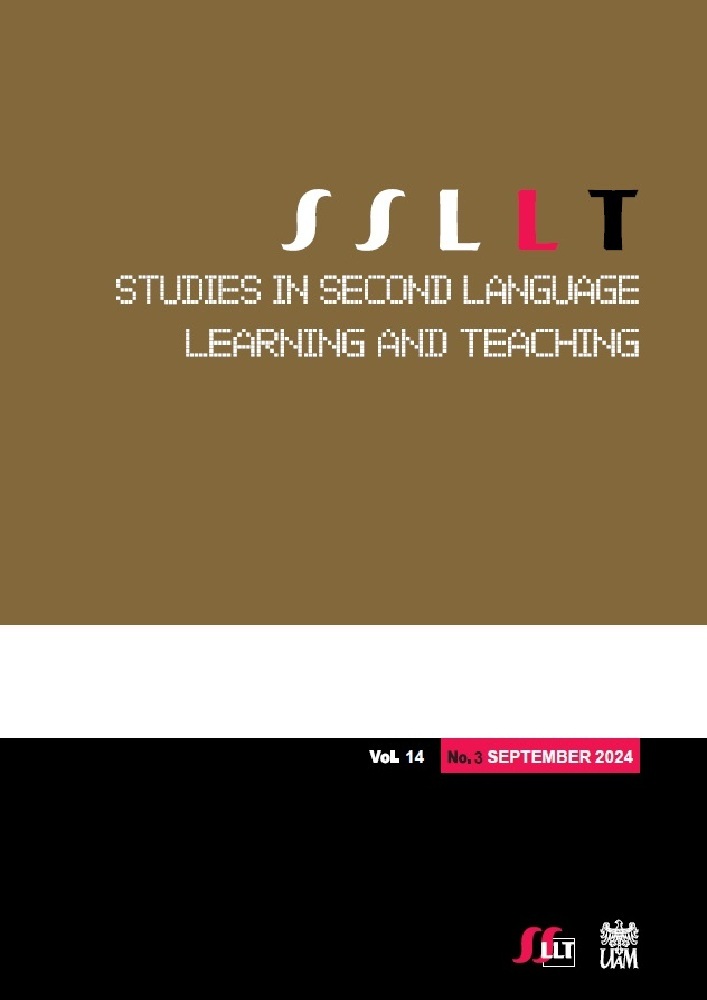Modelling trait and state willingness to communicate in a second language: An experience sampling approach
Modelling trait and state willingness to communicate in a second language: An experience sampling approach
Author(s): Ju Seong Lee, Ming Ming ChiuSubject(s): Foreign languages learning, Applied Sociology
Published by: Uniwersytet Adama Mickiewicza
Keywords: willingness to communicate in a second language; informal language learning; positive psychology in SLA; experience sampling method;
Summary/Abstract: This study investigates whether demographics, L2 enjoyment, L2 anxiety, psy- chological well-being, or informal digital learning of English (IDLE) affect willing- ness to communicate in L2 (L2 WTC) at trait or state levels. Across two weeks, 16 Hong Kong EFL students completed pre-and post-trait-level surveys and gen- erated 1,120 state-level responses via the experience sampling method (ESM). The survey findings revealed that students who were older, had higher language proficiency, or had higher pre-WTC digitally reported higher L2 WTC in the class- room. Students who had studied English longer, had higher language profi- ciency, had higher pre-psychological well-being, had a higher standard deviation L2 WTC over 14 days, or had higher teacher appreciation showed higher L2 WTC outside of class. Students with higher language proficiency, higher pre-WTC dig- itally, or higher post-psychological well-being reported higher L2 WTC in digital settings. The ESM findings revealed that students with higher teacher appreci- ation, currently engaged in productive IDLE or both receptive and productive types of IDLE, currently experienced greater L2 enjoyment, or currently experienced greater well-being had higher L2 WTC now. Our findings are relevant to: (a) L2 WTC, informal language learning, and positive psychology theories, and (b) strategies that can be used to enhance students’ L2 WTC overall and at a particular moment.
Journal: Studies in Second Language Learning and Teaching
- Issue Year: 14/2024
- Issue No: 3
- Page Range: 483-514
- Page Count: 32
- Language: English

